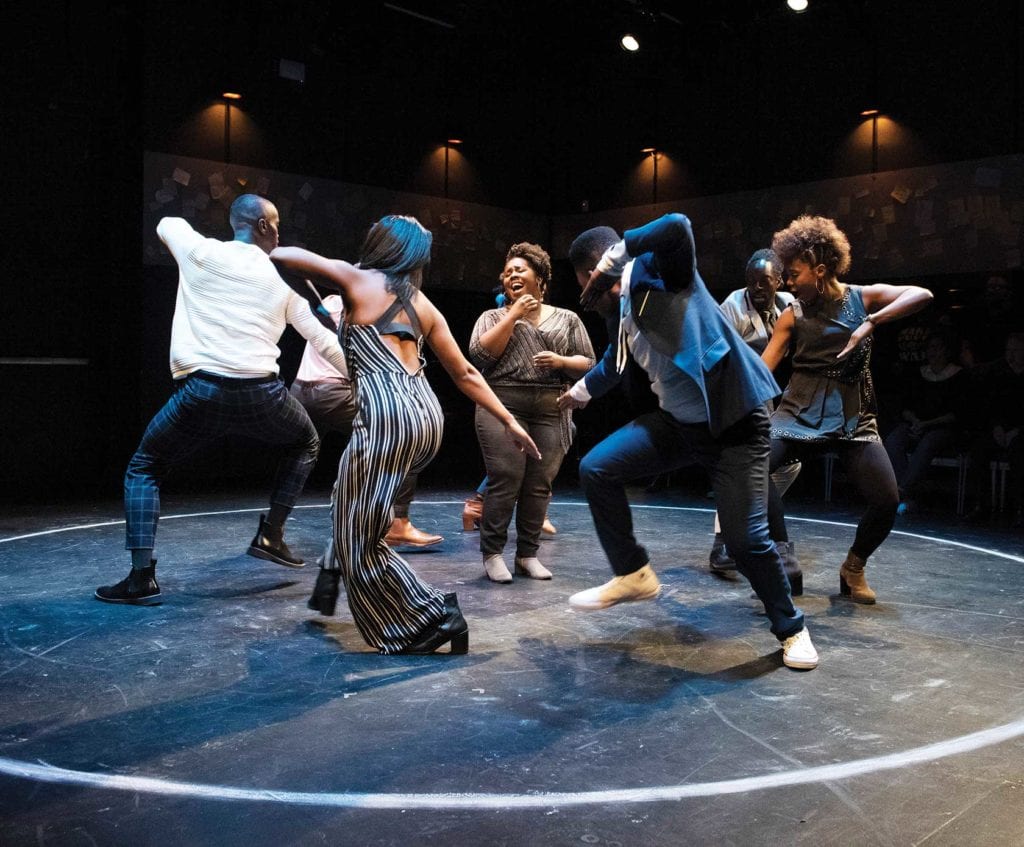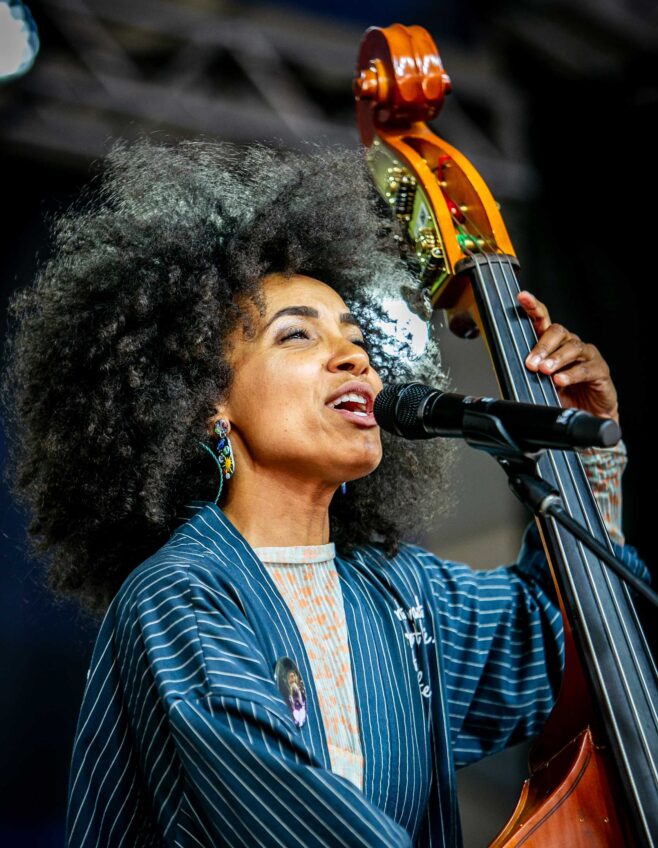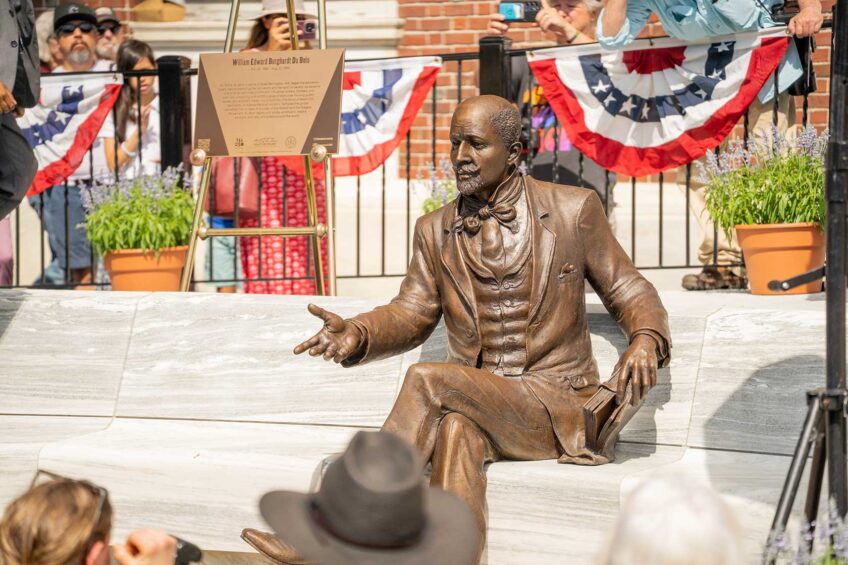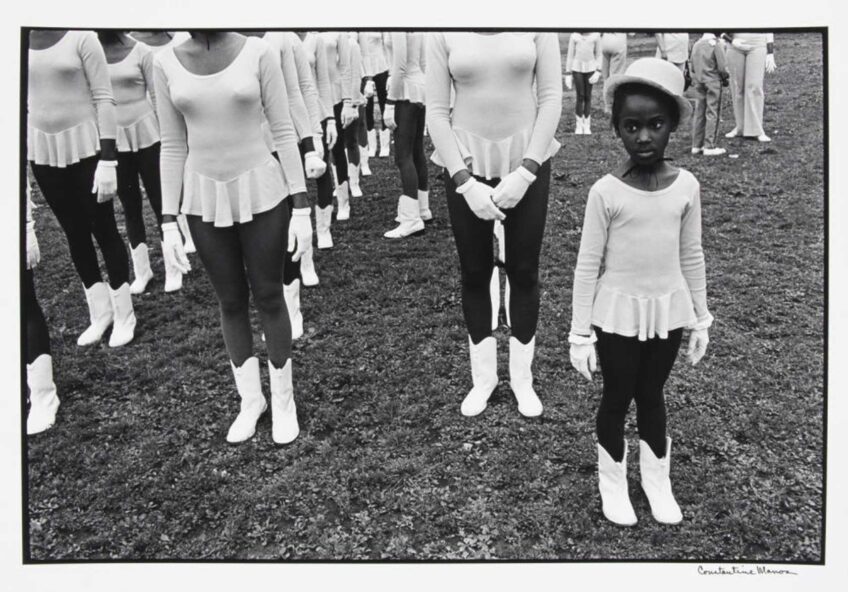‘What to Send Up When It Goes Down’ offers safe space for black Americans

Playwright Aleshea Harris has not just written a performance in her production, “What to Send Up When It Goes Down.” She has created a space, a community ritual and the opportunity for black audience members to breathe. Not just short, shallow, safe breaths, but gulping, life-giving, cathartic gasps. Performed by The Movement Theatre Company, an all-black ensemble, this safe space comes to Dudley Square’s Hibernian Hall Nov. 14 to 16 and to The Ex black box at the Loeb Drama Center in Cambridge Nov. 20 to 24.
“I was really frustrated when the person who killed Trayvon Martin was acquitted,” says Harris, “and I felt like I needed community around that, and I needed to make something. I made a space for my sadness, for my anger, for my need to be affirmed in the face of anti-blackness.” That is the space that will be shared with Boston next month.
During each multi-part performance, the audience, if they would like, is asked to join a circle in the center of the room. From there they are asked questions like, have you ever seen a person denied something because they were black? If yes, the audience members step forward. As the moment moves forward, the questions dig deeper into violence against people of color, for example, have you ever been a victim of police violence? This provides the opportunity for people to acknowledge their experience alongside other people of color who may have had similar experiences.
“It’s relevant to our current moment and our past moment and will be to our future moment, because anti-blackness exists in our country and because black people are carrying around the weight of our feelings about anti-blackness without having consistent spaces to speak about it in an unfiltered, non-gaslighted way,” says Harris.
Community conversation is just one piece of the performance. The ensemble, directed by Whitney White, also uses song, dance, parody and historical context to achieve catharsis and reclamation of their experiences as black Americans. They chant, they deliver shimmering threads of spoken word, they scream, they refuse to keep their emotions quiet any longer.
Harris says she’s seen people have seismic emotional releases within the performance when they finally find themselves in a safe environment. And that is the best possible result of the powerful performance. “It’s not typical, I think, in the theater for this kind of participation, and I think it’s critical to the issue,” Harris says. “I hope that black people leave feeling acknowledged and loved and reminded that they are not alone.”







